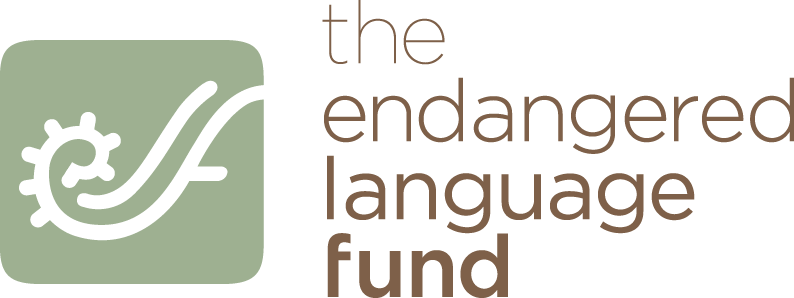Request for Proposals 2020
Language Legacies Grant Program
A PDF of this request form is available here.
The Endangered Language Fund provides grants for language documentation and revitalization, and for linguistic fieldwork. The work most likely to be funded is that which serves both the native community and the field of linguistics, although projects which have immediate applicability to one group and more distant applicability to the other will also be considered. Support for publication is a low priority, although it will be considered. Proposals can originate in any country. The language involved must be in danger of disappearing within a generation or two. Endangerment is a continuum, and the location on the continuum is one factor in our funding decisions.
Eligible expenses include consultant fees, equipment, travel, etc. Overhead is not allowed. Grants are for a one-year period, though extensions may be applied for. We expect grants in this round to be less than $4,000, and to average about $2,000.
Eligible expenses include consultant fees, equipment, travel, etc. Overhead is not allowed. Grants are for a one-year period, though extensions may be applied for. We expect grants in this round to be less than $4,000, and to average about $2,000.
The MKARL Fund
Due to a generous contribution from an anonymous donor, combined with matching donations, the Endangered Language Fund is pleased to be able to expand the scope of its invited proposals through the MKARL Fund (in honor of Michael Krauss) to include work on archival initiatives and efforts. In particular, we encourage proposals that focus on the creation of archives, depositing material to archives, accessing archives, and the hosting of and/or attendance at workshops, seminars, or institutes that offer training and support on archiving activities and initiatives.
Funding from the International Phonetic Association
The International Phonetic Association is interested in co-funding awards for projects that include a phonetic component, especially systematic phonetic documentation of the kind leading to Illustrations of the IPA.
Eligibility
Language activists and researchers from any country are eligible to apply. Awards can be made to institutions, but no administrative (overhead, indirect) costs are covered.
Please note that many languages in the northwestern United States of America are NOT eligible for the Language Legacies program. These languages are covered instead by our Native Voices Endowment (NVE) program. Click for the full list of tribes that are covered by NVE and thus ineligible for the Language Legacies program.
Please note that many languages in the northwestern United States of America are NOT eligible for the Language Legacies program. These languages are covered instead by our Native Voices Endowment (NVE) program. Click for the full list of tribes that are covered by NVE and thus ineligible for the Language Legacies program.
Deadline
Applications must be received by March 15th, 2020. Decisions will be delivered in May, 2020.
How to Apply
Applications must be submitted electronically. No mail or fax applications will be accepted. If you have any questions, please write to us (300 George St., Suite 900, New Haven, CT 06511, USA) or email us at elf_at_yale_dot_edu
Required Information
Cover Page
Please fill out the Cover Page form completely (it is a fillable PDF). If there are collaborating researchers, a separate form should be filled out for each one.
Language of Proposal
We can accept proposals in English or in Spanish.
Description of the Project
Beginning on a separate page, provide a description of the project. This should normally take two pages, single spaced, but the maximum is four pages. Your description should include:
Budget
Prepare an itemized budget that lists expected costs for the project. Eligible expenses include consultant fees, equipment, travel, etc. Administrative (overhead, indirect) costs are not allowed. Estimates are acceptable, but they must be realistic. Please translate the amounts into US dollars. List any other sources of support you are currently receiving or expect to receive and other applications that relate to the current one.
Letter of Support
If the applicant is not from the community whose language is the topic of the proposal, a letter from the community or a speaker expressing support for the project is required. (If this is not possible, explain why.)
Two letters of support are recommended for all applicants, but are not required. Letter-writers can include academic advisors for students or others who know the ability of the applicant to perform the work.
Letters can be included in the electronic file or sent separately by the letter-writer. Note that these letters, if sent separately, must arrive on or before the deadline (March 15th, 2020) in order to be considered. If more than two letters are sent, only the first two received will be read.
Limit to One Proposal
A researcher can be the primary researcher on only one proposal per year.
Acknowledgment of Receipt
Receipt of the application will be acknowledged by email.
If a Grant is Awarded
Before receiving any funds, university-based applicants must show that they have met the requirements of their university's human subjects committee (IRB). Tribal or other applicants must provide equivalent assurance that proper protocols are being used.
If a grant is offered and accepted, one year after the award is made the recipient is required to provide the Endangered Language Fund with a short formal report on the project and choose from one of two options:
2. If materials were archived or stored at another institution (as indicated and budgeted for in the proposal, and as reconfirmed at the time of
the award offer), details on where the institution is located, and how to access the materials, must be provided.
Further inquiries can be made to:
The Endangered Language Fund
elf_at_yale_dot_edu
300 George Street, Suite 900
New Haven, CT 06511 USA
Tel: 203-865-6163
Fax: 203-865-8963
- Download and fill out the Cover Page form.
- Create a single PDF of your application: combine the cover sheet and all of the information requested below into one pdf. (There are many free online services that merge PDF files, for example: https://www.pdfmerge.com/.)
- Email your completed application to elf_at_yale_dot_edu.
Applications must be submitted electronically. No mail or fax applications will be accepted. If you have any questions, please write to us (300 George St., Suite 900, New Haven, CT 06511, USA) or email us at elf_at_yale_dot_edu
Required Information
Cover Page
Please fill out the Cover Page form completely (it is a fillable PDF). If there are collaborating researchers, a separate form should be filled out for each one.
Language of Proposal
We can accept proposals in English or in Spanish.
Description of the Project
Beginning on a separate page, provide a description of the project. This should normally take two pages, single spaced, but the maximum is four pages. Your description should include:
- A brief description of the state of endangerment of the language in question.
- Assessment of the state of support for the language (tribal budgets, immersion schools, elder gatherings, etc.).
- Details about the type of material that is to be collected and/or produced.
- The value it will have to the native community (including relatives and descendants who do not speak the language) and its contribution to linguistic science.
- If an archival project, then a description of the computing platform, software, and cataloguing or metadata standards that will be used.
Budget
Prepare an itemized budget that lists expected costs for the project. Eligible expenses include consultant fees, equipment, travel, etc. Administrative (overhead, indirect) costs are not allowed. Estimates are acceptable, but they must be realistic. Please translate the amounts into US dollars. List any other sources of support you are currently receiving or expect to receive and other applications that relate to the current one.
Letter of Support
If the applicant is not from the community whose language is the topic of the proposal, a letter from the community or a speaker expressing support for the project is required. (If this is not possible, explain why.)
Two letters of support are recommended for all applicants, but are not required. Letter-writers can include academic advisors for students or others who know the ability of the applicant to perform the work.
Letters can be included in the electronic file or sent separately by the letter-writer. Note that these letters, if sent separately, must arrive on or before the deadline (March 15th, 2020) in order to be considered. If more than two letters are sent, only the first two received will be read.
Limit to One Proposal
A researcher can be the primary researcher on only one proposal per year.
Acknowledgment of Receipt
Receipt of the application will be acknowledged by email.
If a Grant is Awarded
Before receiving any funds, university-based applicants must show that they have met the requirements of their university's human subjects committee (IRB). Tribal or other applicants must provide equivalent assurance that proper protocols are being used.
If a grant is offered and accepted, one year after the award is made the recipient is required to provide the Endangered Language Fund with a short formal report on the project and choose from one of two options:
- Digital copies of all materials produced, including any audio or video recordings, any accompanying transcriptions, and any publications resulting from the grant should be sent to ELF (elf_at_yale_dot_edu) as a zipped file. Access levels will be detailed in the letter of award.
2. If materials were archived or stored at another institution (as indicated and budgeted for in the proposal, and as reconfirmed at the time of
the award offer), details on where the institution is located, and how to access the materials, must be provided.
Further inquiries can be made to:
The Endangered Language Fund
elf_at_yale_dot_edu
300 George Street, Suite 900
New Haven, CT 06511 USA
Tel: 203-865-6163
Fax: 203-865-8963

